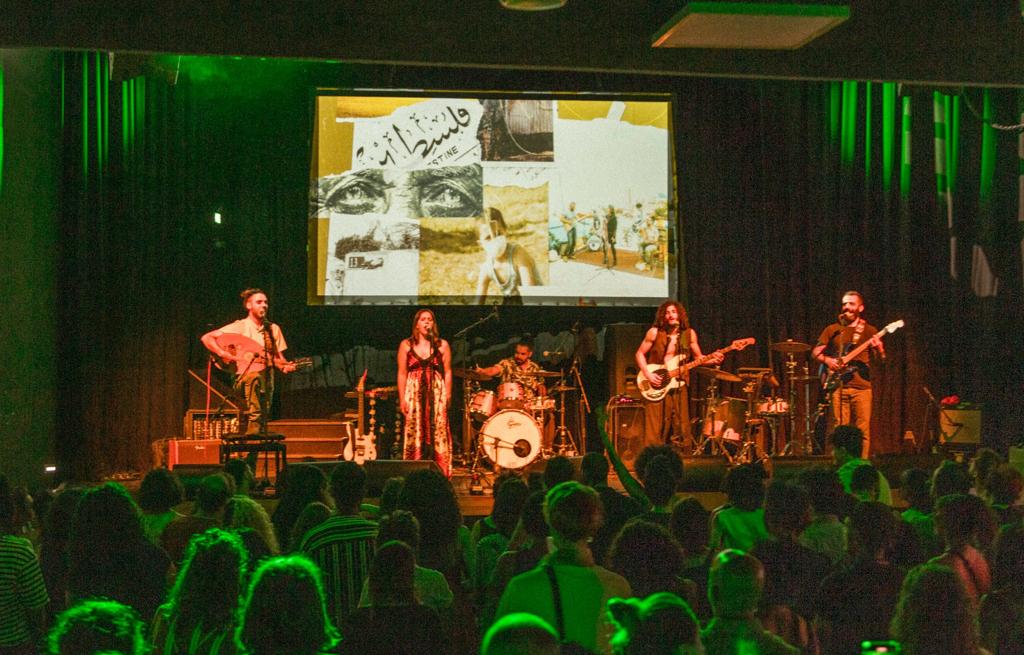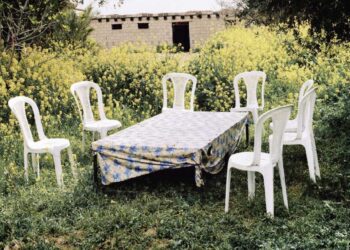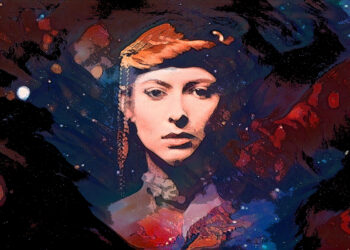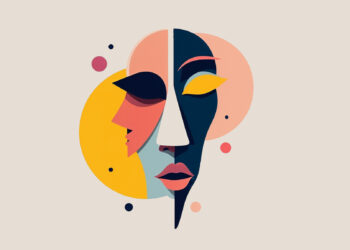SAOT festival provides a stage for artists and activists that stand in solidarity with the Palestinian cause and other intersectional struggles to share their narratives, experiences, and aspirations. By amplifying their voices and shedding light on aforementioned struggles, the festival aims to foster greater awareness on these themes.
Moreover, it recognizes that the struggle for justice extends beyond national borders. Intersectionality is a core principle embraced by the festival, acknowledging the interconnectedness of various struggles against discrimination, oppression, and injustice, including those of marginalized communities such as LGBTQ+ individuals, refugees, and people of color.
I had the opportunity to chat with Diana Nazzal, one of this year´s co-organizers of the SAOT Festival. She’s part of a small group of voluntary activists namely; Nour Al Safadi, Maisan Hamdan, Rahaf Abu Hassan, Diana Nazzal and Qassem Massri, who managed to bring the festival to life alongside their everyday life occupations. In Diana´s opinion the Festival was more than just an event; it was a movement for social change through the power of culture and activism.
What is SAOT?
The word SAOT derives from the Arabic language and means sound as well as voice. The sound and voices of Palestine have been forcefully silenced since 1948 (the Palestinian Nakba), therefore the SAOT-Festival aims to create a platform for the unheard voices of Palestine and other areas in SWANA. It does so by inviting artists that use their art as a tool to tell stories about their home countries, point out injustices, and send political messages that are usually difficult to find in the mainstream western media context.
What motivated you to organize this festival specifically in Berlin, Germany?
Berlin hosts the biggest Palestinian community outside of Palestine, therefore we wanted to help create an opportunity to celebrate our history and culture at the same time as connect the Palestinian diaspora to the people in the homeland. In addition to that Palestinian activism in Germany faces growing repressions, Palestine-related events are being canceled on a regular basis, Palestinian academics face daily censorship and fear of losing their jobs by speaking about their personal experiences, observations or research on Palestine. SAOT Festival may be one of the uncompromising responses to these repressions, seeking to make our voices heard without stuttering, focusing on the injustices that are happening in Palestine and other SWANA countries.
How does the festival aim to promote solidarity and understanding between different communities and movements?
This year SAOT Festival invited a band from Tunisia, Badia Bouhrizi, and Syrian as well as Yemeni filmmakers to present their work and the struggles of their countries. Thereby we aim to shed light on other SWANA countries, so we learn about each other’s struggles. With an understanding of the struggles of other regions, solidarity grows among communities.
What types of activities and events can attendees expect at the festival?
One of our main musical act this year was the Palestinian band of Haya Zaatry, whose musical lyrics aim to tell everyday personal stories of Palestine. The Palestinian-Syrian band Darbet Shams from the Golan Heights participated in the festival at a time when the residents of the Golan Heights stood against land theft and oppression. Bashar Murad, a queer artist from Jerusalem, faces the ethnic cleansing policies by the Israeli occupation on an everyday base. Badia Bouhrizi, a Tunisian singer and songwriter, participated in continuous support of the Palestinian movement outside of Palestine. Many local Arabic DJs participated in the festival, including DJ YA ZAN and the Syrian DJ group Saraab. Furthermore, we organized a panel discussion presenting the work of the European legal support center (ELSC) aiming to offer judicial support for political activists facing repression in Europe. We also presented several short movies from Yemen, Syria, and Palestine on the topics of exile, diaspora, and occupation.
How do you address the potential criticism that events like this may be seen as one-sided or politically motivated, and how do you strive to maintain a balanced and inclusive approach?
In this politically hostile environment in Germany, where our collective voices are oppressed, such events are absolutely necessary to shed light on the marginalized perspectives. So we disagree that it’s one-sided, on the contrary.
How have you ensured that Palestinian voices and perspectives are at the forefront of the festival, while also incorporating a broader range of intersectional struggles?
We see the Palestinian cause as an important part of the worldwide ongoing anticolonial struggle. It’s also a struggle for freedom and dignity which unifies many struggles in the SWANA region. Therefore, intersectionality is the language we speak to bring as many people together as possible and hopefully help to change the discourse in Germany.
What are your hopes and aspirations for the future of the festival and its contribution to the ongoing conversations and actions for solidarity with Palestine and intersectional struggles in Germany?
We hope SAOT festival will become an annual occasion for Arabic activists and artists in order to strengthen our community internally and grow together.








